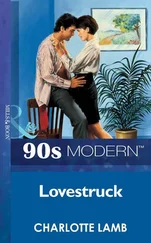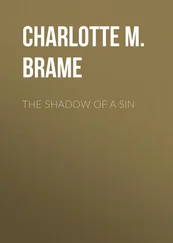Charlotte Brame - Love Works Wonders - A Novel
Здесь есть возможность читать онлайн «Charlotte Brame - Love Works Wonders - A Novel» — ознакомительный отрывок электронной книги совершенно бесплатно, а после прочтения отрывка купить полную версию. В некоторых случаях можно слушать аудио, скачать через торрент в формате fb2 и присутствует краткое содержание. ISBN: , Жанр: foreign_antique, foreign_prose, на английском языке. Описание произведения, (предисловие) а так же отзывы посетителей доступны на портале библиотеки ЛибКат.
- Название:Love Works Wonders: A Novel
- Автор:
- Жанр:
- Год:неизвестен
- ISBN:http://www.gutenberg.org/ebooks/33989
- Рейтинг книги:3 / 5. Голосов: 1
-
Избранное:Добавить в избранное
- Отзывы:
-
Ваша оценка:
- 60
- 1
- 2
- 3
- 4
- 5
Love Works Wonders: A Novel: краткое содержание, описание и аннотация
Предлагаем к чтению аннотацию, описание, краткое содержание или предисловие (зависит от того, что написал сам автор книги «Love Works Wonders: A Novel»). Если вы не нашли необходимую информацию о книге — напишите в комментариях, мы постараемся отыскать её.
Love Works Wonders: A Novel — читать онлайн ознакомительный отрывок
Ниже представлен текст книги, разбитый по страницам. Система сохранения места последней прочитанной страницы, позволяет с удобством читать онлайн бесплатно книгу «Love Works Wonders: A Novel», без необходимости каждый раз заново искать на чём Вы остановились. Поставьте закладку, и сможете в любой момент перейти на страницу, на которой закончили чтение.
Интервал:
Закладка:
"Not one," was the quick reply.
"You know nothing of the keys, time, or anything else?"
"Why should I trouble myself when I could play without learning anything of the kind?"
"But that kind of playing, Pauline, although it is very clever, would not do for educated people."
"Is it not good enough for them?" she asked, serenely.
"No; one cannot help admiring it, but any educated person hearing you would detect directly that you did not know your notes."
"Would they think much less of me on that account?" she asked, with the same serenity.
"Yes; every one would think it sad to see so much talent wasted. You must begin to study hard; you must learn to play by note, not by ear, and then all will be well. You love music, Pauline?"
How the beautiful face glowed and the dark eyes shone.
"I love it," she said, "because I can put my whole soul into it – there is room for one's soul in it. You will be shocked, I know, but that is why I liked Comte's theories – because they filled my mind, and gave me so much to think of."
"Were I in your place I should try to forget them, Pauline."
"You should have seen Sir Oswald's face when I told him I had read Comte and Darwin. He positively groaned aloud."
And she laughed as she remembered his misery.
"I feel very much inclined to groan myself," said Miss Hastings. "You shall have theories, or facts, higher, more beautiful, nobler, grander far than any Comte ever dreamed. And now we must begin to work in real earnest."
But Pauline Darrell did not move; her dark eyes were shadowed, her beautiful face grew sullen and determined.
"You are going to spoil my life," she said. "Hitherto it has been a glorious life – free, gladsome, and bright; now you are going to parcel it out. There will be no more sunshiny hours; you are going to reduce me to a kind of machine, to cut off all my beautiful dreams, my lofty thoughts. You want to make me a formal, precise young lady, who will laugh, speak, and think by rule."
"I want to make you a sensible woman, my dear Pauline," corrected Miss Hastings, gravely.
"Who is the better or the happier for being so sensible?" demanded Pauline.
She paused for a few minutes, and then she added, suddenly:
"Darrell Court and all the wealth of the Darrells are not worth it, Miss Hastings."
"Not worth what, Pauline?"
"Not worth the price I must pay."
"What is the price?" asked Miss Hastings, calmly.
"My independence, my freedom of action and thought, my liberty of speech."
"Do you seriously value these more highly than all that Sir Oswald could leave you?"
"I do – a thousand times more highly," she replied.
Miss Hastings was silent for some few minutes, and then said:
"We must do our best; suppose we make a compromise? I will give you all the liberty that I honestly can, in every way, and you shall give your attention to the studies I propose. I will make your task as easy as I can for you. Darrell Court is worth a struggle."
"Yes," was the half-reluctant reply, "it is worth a struggle, and I will make it."
But there was not much hope in the heart of the governess when she commenced her task.
CHAPTER V.
PAULINE'S GOOD POINTS
How often Sir Oswald's simile of the untrained, unpruned, uncultivated vine returned to the mind of Miss Hastings! Pauline Darrell was by nature a genius, a girl of magnificent intellect, a grand, noble, generous being all untrained. She had in her capabilities of the greatest kind – she could be either the very empress of wickedness or angelic. She was gloriously endowed, but it was impossible to tell how she would develop; there was no moderation in her, she acted always from impulse, and her impulses were quick, warm, and irresistible. If she had been an actress, she would surely have been the very queen of the stage. Her faults were like her virtues, all grand ones. There was nothing trivial, nothing mean, nothing ungenerous about her. She was of a nature likely to be led to the highest criminality or the highest virtue; there could be no medium of mediocre virtue for her. She was full of character, charming even in her willfulness, but utterly devoid of all small affectations. There was in her the making of a magnificent woman, a great heroine; but nothing could have brought her to the level of commonplace people. Her character was almost a terrible one in view of the responsibilities attached to it.
Grand, daring, original, Pauline was all force, all fire, all passion. Whatever she loved, she loved with an intensity almost terrible to witness. There was also no "middle way" in her dislikes – she hated with a fury of hate. She had little patience, little toleration; one of her greatest delights consisted in ruthlessly tearing away the social vail which most people loved to wear. There were times when her grand, pale, passionate beauty seemed to darken and to deepen, and one felt instinctively that it was in her to be cruel even to fierceness; and again, when her heart was touched and her face softened, one imagined that she might be somewhat akin to the angels.
What was to become of such a nature? What was to develop it – what was to train it? If from her infancy Pauline had been under wise and tender guidance, if some mind that she felt to be superior to her own had influenced her, the certainty is that she would have grown up into a thoughtful, intellectual, talented woman, one whose influence would have been paramount for good, one to whom men would have looked for guidance almost unconsciously to themselves.
But her training had been terribly defective. No one had ever controlled her. She had been mistress of her father's house and queen of his little coterie; with her quiet, unerring judgment, she had made her own estimate of the strength, the mind, the intellect of each one with whom she came in contact, and the result was always favorable to herself – she saw no one superior to herself. Then the society in which her father had delighted was the worst possible for her; she reigned supreme over them all – clever, gifted artists, good-natured Bohemians, who admired and applauded her, who praised every word that fell from her lips, who honestly believed her to be one of the marvels of the world, who told her continually that she was one of the most beautiful, most talented, most charming of mortals, who applauded every daring sentiment instead of telling her plainly that what was not orthodox was seldom right – honest Bohemians, who looked upon the child as a wonder, and puzzled themselves to think what destiny was high enough for her – men whose artistic tastes were gratified by the sight of her magnificent loveliness, who had for her the deepest, truest, and highest respect, who never in her presence uttered a syllable that they would not have uttered in the presence of a child – good-natured Bohemians, who sometimes had money and sometimes had none, who were always willing to share their last sou with others more needy than themselves, who wore shabby, threadbare coats, but who knew how to respect the pure presence of a pure girl.
Pauline had received a kind of education. Her father's friends discussed everything – art, science, politics, and literature – in her presence; they discussed the wildest stories, they indulged in unbounded fun and satire, they were of the wittiest even as they were of the cleverest of men. They ridiculed unmercifully what they were pleased to call the "regulations of polite society;" they enjoyed unvarnished truth – as a rule, the more disagreeable the truth the more they delighted in telling it. They scorned all etiquette, they pursued all dandies and belles with terrible sarcasm; they believed in every wild or impossible theory that had ever been started; in fact, though honest as the day, honorable, and true, they were about the worst associates a young girl could have had to fit her for the world. The life she led among them had been one long romance, of which she had been queen.
Читать дальшеИнтервал:
Закладка:
Похожие книги на «Love Works Wonders: A Novel»
Представляем Вашему вниманию похожие книги на «Love Works Wonders: A Novel» списком для выбора. Мы отобрали схожую по названию и смыслу литературу в надежде предоставить читателям больше вариантов отыскать новые, интересные, ещё непрочитанные произведения.
Обсуждение, отзывы о книге «Love Works Wonders: A Novel» и просто собственные мнения читателей. Оставьте ваши комментарии, напишите, что Вы думаете о произведении, его смысле или главных героях. Укажите что конкретно понравилось, а что нет, и почему Вы так считаете.












